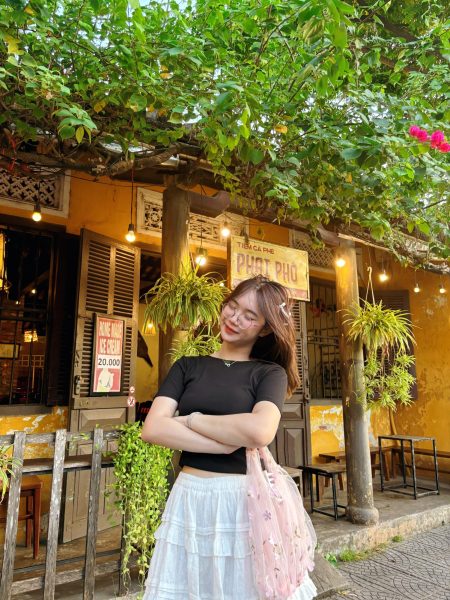Texas Wesleyan University students will have the opportunity to enhance their research and citation skills this fall, thanks to a series of seven Library Instruction Workshops hosted by the West Library.
The workshops, which begin Monday, Oct. 7, are designed to support students in areas of academic research, citation management, and the use of generative AI.
“We’re offering these workshops to help students with the challenges they face in research,” said Dennis Miles, reference and instruction librarian at West Library. “Our goal is to give them the tools they need to succeed in their classes.”
The first workshop, titled Getting Help from the West Library, will introduce students to the reference department and the resources available to assist with research. Following that, an Oct. 8 workshop will focus on mastering APA style, a widely used citation format across disciplines such as psychology, business, and English.
“The first workshop will help students understand how we, in the reference department, can support their research needs,” Miles said. “From there, our APA style workshop on Oct. 8 addresses one of the most common challenges students face—citing sources correctly. APA is a key format in several fields, so it’s crucial for students to get it right.”
The selection of seven workshops was based on student input from a survey conducted earlier this semester.
“We initially presented students with 24 workshop options, and these seven were chosen based on the highest levels of interest. We want to ensure we’re offering sessions that directly meet their needs,” Miles said.
Bryan Wofford, a mass communication major at Texas Wesleyan, said he was drawn to the workshops after seeing posters in the library.
“Some of the workshops cover things that would be super useful for my major, like the AP style and AI sessions,” Wofford said. “I’m hoping to learn more about organizing my research and brushing up on citation management. These skills will definitely help me in my classes and future career.”
Risa Brown, reference assistant at West Library, will lead the first workshop, which focuses on an introduction to library resources.
“While we won’t do a deep dive into the tools, students will have a chance to be introduced to them and ask questions,” Brown said. “I hope this will help remove the intimidation factor students often feel when approaching library research.”
Brown also emphasized that using library databases can save students both time and money.
“Many of the databases we provide are subscription-based, so students get access to articles and resources that would otherwise cost them money,” she said. “By attending these workshops, students will know how to efficiently access these resources.”
Other upcoming workshops will include sessions on comparing search results from Google versus library databases (Oct. 15) and managing citations with Zotero (Oct. 22), a tool that helps students organize and format their references. The series will also explore cutting-edge topics like generative AI, with workshops on prompt engineering (Oct. 24) and an introduction to AI tools (Nov. 6).
“These topics are very current,” Miles said. “More and more students are using AI in their classes, and we want to help them use these tools effectively.”
The final workshop on Nov. 20, Searching for and Using Comics, will introduce students to the library’s comic book collection and the Comics Plus database. While this session is more lighthearted, Miles hopes it will show students that research can be both fun and informative.
“The comic book workshop is meant to be a fun way for students to engage with our resources,” Miles said. “We want them to see that research doesn’t always have to be serious—it can be enjoyable and still educational at the same time.”
The library’s role in academic support goes beyond providing materials—it’s about helping students navigate the complexities of academic research.
“We’re here to support both students and faculty,” Miles said. “Our workshops are designed to help students feel more confident using the resources we have.”
Students can sign up for the workshops via a QR code available at various tabling events around campus. Whether they’re new to research or looking to sharpen their skills, Miles hopes students will take advantage of the opportunity.
“We want students to know that we’re here to help,” he said. “The more they use our resources, the more successful they’ll be in their academic work.”









![Pippin, played by Hunter Heart, leads a musical number in the second act of the musical. [Photo courtesy Kris Ikejiri]](https://therambler.org/wp-content/uploads/2025/04/Pippin-Review-1200x800.jpg)
![Harriet and Warren, played by Trinity Chenault and Trent Cole, embrace in a hug [Photo courtesy Lauren Hunt]](https://therambler.org/wp-content/uploads/2025/02/lettersfromthelibrary_01-1200x800.jpg)
![Samantha Barragan celebrates following victory in a bout. [Photo courtesy Tu Pha]](https://therambler.org/wp-content/uploads/2025/05/20250504_164435000_iOS-834x1200.jpg)





![Hunter Heart (center), the play's lead, rehearses a scene alongside other student actors. [Photo courtesy Jacob Sanchez]](https://therambler.org/wp-content/uploads/2025/04/thumbnail_IMG_8412-1200x816.jpg)
![Student actors rehearse for Pippin, Theatre Wesleyan's upcoming musical. [Photo courtesy Jacob Rivera-Sanchez]](https://therambler.org/wp-content/uploads/2025/04/Pippin-Preview-1200x739.jpg)
![[Photo courtesy Brooklyn Rowe]](https://therambler.org/wp-content/uploads/2025/05/CMYK_Shaiza_4227-1080x1200.jpg)

![Lady Rams softball wraps up weekend against Nelson Lions with a victory [6 – 1]](https://therambler.org/wp-content/uploads/2025/04/Screenshot-2025-04-04-100924-1200x647.png)
















![Upcoming library instruction workshops available at the West Library. [image courtesy of West Library]](https://therambler.org/wp-content/uploads/2024/10/Reference-Workshops-1200x687.png)
